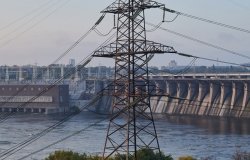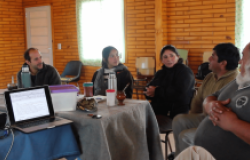The Ripple Effect of Dams and Water Transfer Projects in China
China’s water scarcity is driving the development of massive dams and water transfer projects, moving water from the water-rich south to the parched north. Hydropower, a low-carbon electricity source, already supplies 16% of the country’s power. At this meeting, speakers will look behind the water infrastructure trends in China and discuss some of the social and environmental challenges.
Overview
In China no infrastructure project is too big. China has been accelerating dam construction to meet the country’s electricity hunger and calls for low-carbon power. The South-North Water Transfer project’s second canal came online this month shifting water to China’s parched north. At this meeting, Scott Moore (Harvard University/Council on Foreign Relations) will dive into the environmental and development challenges that this water transfer project is facing. On the hydropower front, Bryan Tilt (Oregon State University) will focus on the management of population displacement for large hydroelectric dams on the Lancang (Upper Mekong) River in Yunnan Province, and Juan Xi (University of Akron) will examine similar issues with the Three Gorges Dam.
There will be podcast available online following the event
Speakers
Hosted By

China Environment Forum
Since 1997, the China Environment Forum's mission has been to forge US-China cooperation on energy, environment, and sustainable development challenges. We play a unique nonpartisan role in creating multi-stakeholder dialogues around these issues. Read more

Global Risk and Resilience Program
The Global Risk and Resilience Program (GRRP) seeks to support the development of inclusive, resilient networks in local communities facing global change. By providing a platform for sharing lessons, mapping knowledge, and linking people and ideas, GRRP and its affiliated programs empower policymakers, practitioners, and community members to participate in the global dialogue on sustainability and resilience. Empowered communities are better able to develop flexible, diverse, and equitable networks of resilience that can improve their health, preserve their natural resources, and build peace between people in a changing world. Read more
Thank you for your interest in this event. Please send any feedback or questions to our Events staff.










